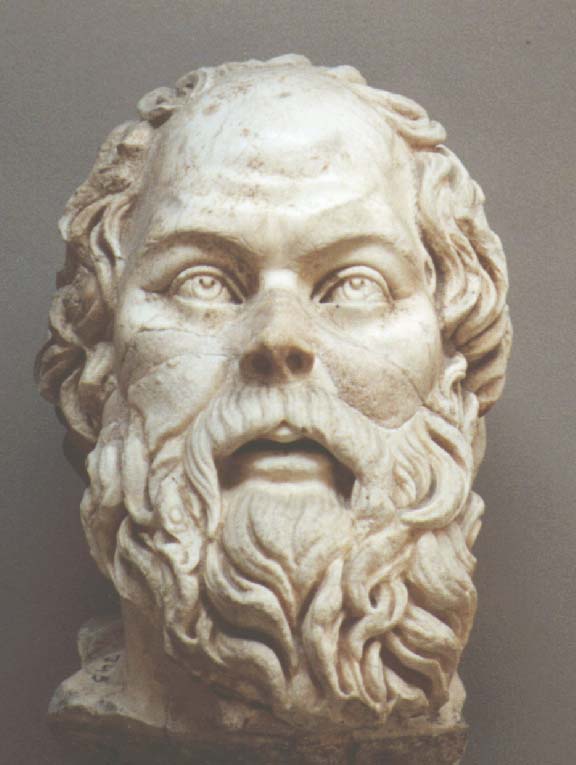When I was an undergraduate, I took a course entitled “Philosophic Issues,” which was basically an introduction to philosophy in a historical sequence. We started with Plato, reading a couple of the Socratic dialogues. And the professor informed us that he used the Socratic Method in class. We were warned.
The point of the Crito by Plato (as we discussed it in class) is that the State is more important than the individual. In the dialogue, one of Socrates’ students, Crito, asks his master why he is abiding by the sentence of death that had been leveled against him. Socrates had been condemned for impiety and corrupting the youth of Athens, and been sentenced to die by hemlock. Crito offers to help Socrates escape and flee Athens, but Socrates chooses to stay and abide by the sentence. He claims that the injustice done to him by the State (his sentence) should not be answered by an injustice from him (his escape). He leads his student through the concepts that conclude in an agreement that the State is more important than the Individual, and thus the Individual ought to submit to the decrees of the State.
Now, it so happened that in this class there were a few other serious Christians besides myself. And we don’t believe that the State is more important than the individual. But I was about to find out that I could not (at that time) articulate why I believed that.
Our professor began the discussion of the Crito by asking who did not agree with Socrates. Several hands went up (mostly the Christians in the class). When he asked who would discuss why, I ended up being the target of the day. (I don’t recall now if I volunteered or I was selected.) What followed was a sharp lesson in how we need to be careful about the premises and declarations we agree to, because the consequences that can follow from them can take us far from our actual beliefs.
Step by step, he went through the points that Socrates raises and asked if I agreed with that point or not. The next question would follow from that. So, step by step, he led me logically down the path to the concluding declaration that the State is more important than the Individual.
And, logically, I had to agree.
But I still didn’t believe it, and promptly started wondering at which step I had lost hold of a key element of my belief.
The experience made me very attentive to statements and declarations and what the consequences of such things may be. There are so many hidden assumptions in the things that people declare, many unrecognized and unquestioned.
During the time I was taking this class I was also beginning to dig into the writings of C.S. Lewis. Oh, I was aware of his writing before this time, but I had not read any of his books (not even the Narnia books).
I was reading mostly his non-fiction initially. Somewhere along the line I read Mere Christianity and found myself appreciating his logic and clear way of articulating the points. And in that work lies the articulation of a Christian’s answer to the Crito.
You cannot make men good by law and without good men you cannot have a good society…. If individuals live only seventy years, then a state, or a nation, or a civilization, which may last for a thousand years, is more important than an individual. But if Christianity is true, then the individual is not only more important by incomparably more important, for he is everlasting and the life of a state or a civilization, compared with his, is only a moment.
— C.S. Lewis, in Mere Christianity, Bk 3, ch. 1, p 72, cited in Complete Letters of C.S. Lewis, v. 3.
Socrates starts from the unquestioned assumption that the individual – and his or her soul – is completely mortal: that once we are dead we are done and gone. Christians believe that our mortal bodies are implanted with an immortal soul. Mortality becomes considerably less final than the shape our souls take.
In any case, the experience of being put through the Socratic wringer left an indelible impression on me.




